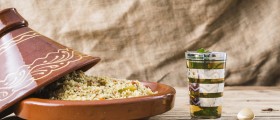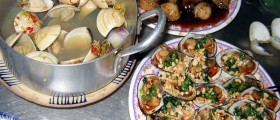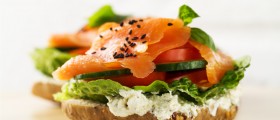
Many people suffer from gout and they are well aware that this problem can be at least relieved with certain dietary choices. There are foods that are beneficial for gout sufferers and there are those that are a definite no-no.
About gout
Gout can be defined as a form of rheumatoid arthritis. It is an inflammatory condition that, in most cases, involves the big toe. It causes significant pain, as well as swelling and tenderness. When it affects the big toe, gout is also called podagra.
Gout is caused by excess uric acid in the body, which crystallizes and interferes with normal functioning of the joints. Although it is usually observed in the big toe, gout can affect any toe and also fingers, ankles, knees and elbows.
High uric acid concentrations can be a result of certain dietary habits, as this acid is a byproduct of the metabolism of protein and purine. It is only logical that reducing the intake of foods rich in those substances should reduce the severity of gout attacks and even prevent them.
Diet for gout
The first step in reducing the occurrence and the severity of gout attacks is to reduce the intake of foods rich in purine, which includes beef, pork, lamb, internal organs like liver, kidneys, brains and gravy with meat extracts. Basically, the intake of proteins should be reduced, but this does not mean avoiding protein completely because it is a very important nutrient and its deficiency can lead to various diseases and conditions.
Alcoholic beverages, especially beer, should be reduced to minimum, but the best thing would be to exclude them altogether.
Other foods to be avoided include all sorts of mushrooms, legumes like beans, lentils and soy, and certain vegetables, especially cauliflower, spinach and asparagus.
Seafood often raises the levels of uric acid, which is why it is better to avoid cod, anchovies, herrings, sardines, haddock, caviar, mussels and scallops.
On the other hand, there are foods whose consumption is encouraged in people who suffer from gout. Vegetables, especially if fresh or only lightly cooked or steamed, are highly recommended. Vegetable soups and juices are also a great way to benefit from vegetables. It is, however, recommended to avoid starchy vegetables like potatoes or corn, or to limit them to two portions per week.
Wild or black cherries are known to be very helpful against gout. They can be eaten fresh or squeezed into juice. Cherries are beneficial because they contain anthocyanocids, which counteract and reduce uric acid.





-Symptoms,-Diagnosis,-Treatment_f_280x120.jpg)











Your thoughts on this
Loading...